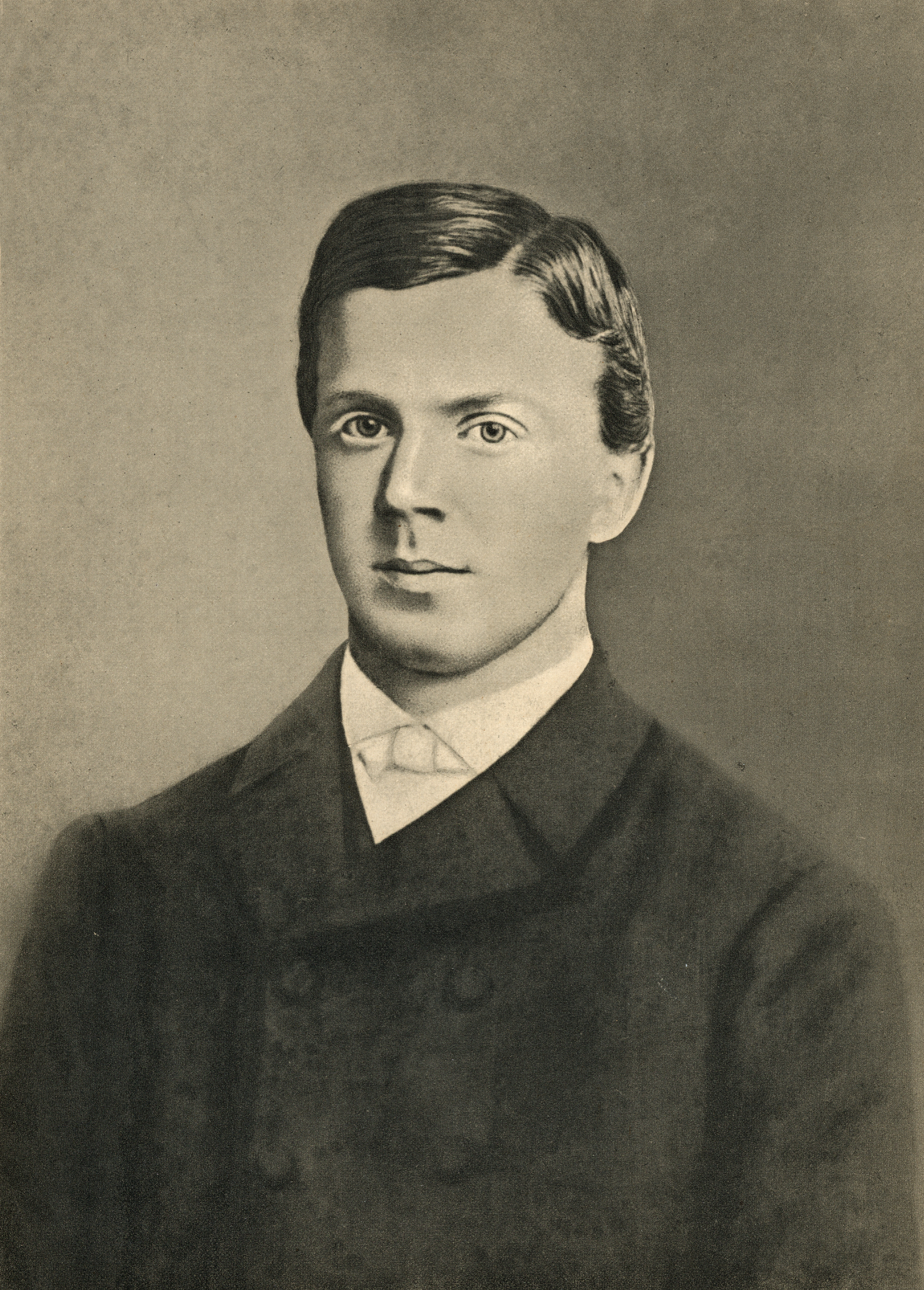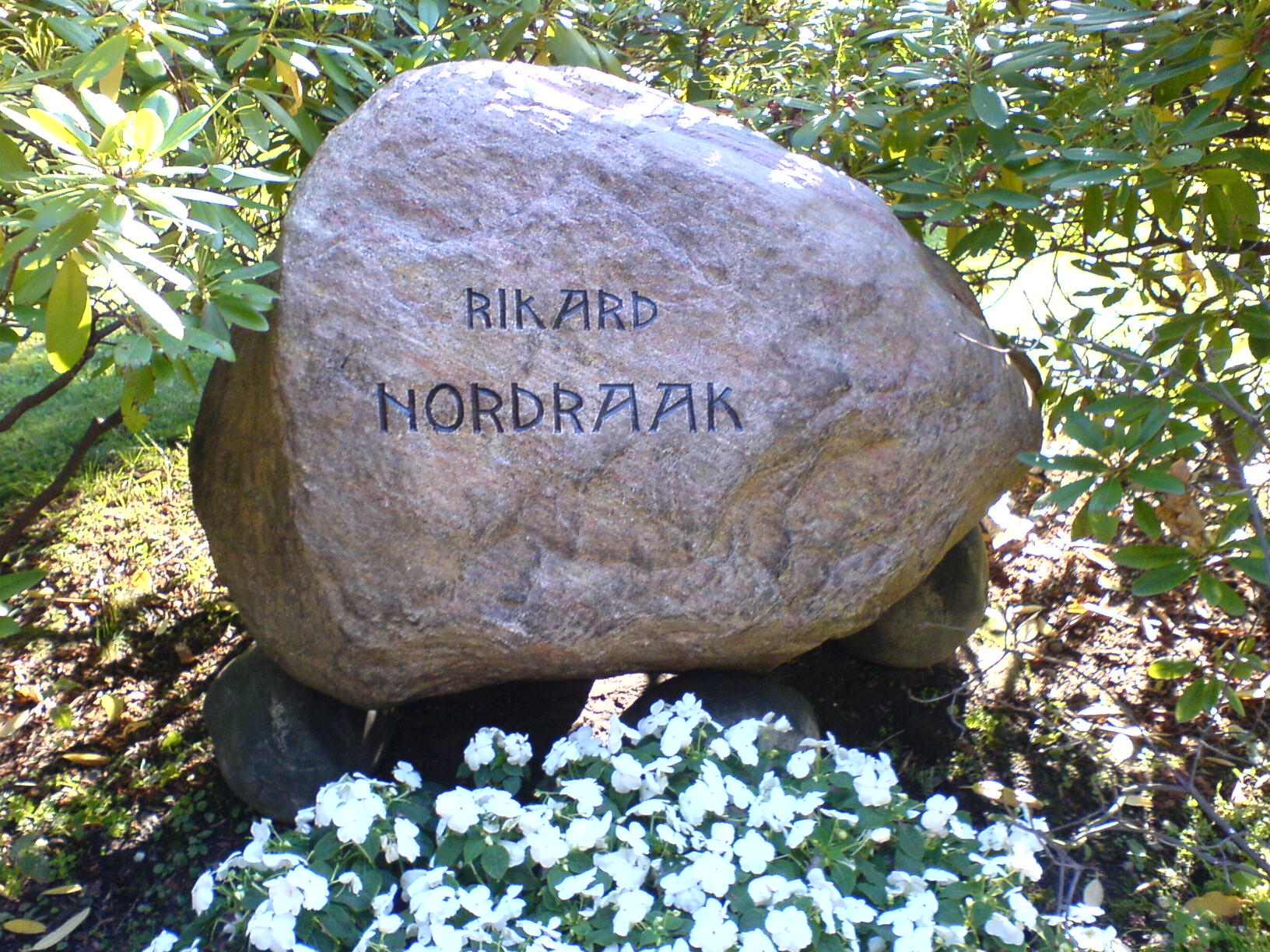Richard Nordraak (1842 - 1866) (7859259502) on:
[Wikipedia]
[Google]
[Amazon]
 Rikard Nordraak (12 June 1842 – 20 March 1866) was a Norwegian composer. He is best known as the composer of the Norwegian national anthem, " Ja, vi elsker dette landet".
Rikard Nordraak (12 June 1842 – 20 March 1866) was a Norwegian composer. He is best known as the composer of the Norwegian national anthem, " Ja, vi elsker dette landet".
 Nordraak's musical gifts became evident at an early age, but as for many other artists at that time, a different career was already planned. He was going to pursue a career within business, and when he was fifteen he was sent to business school in Copenhagen. Nonetheless his musical interests prevailed and instead of studying business he ended up studying music, and in 1859 he went to Berlin for advanced studies. After six months he had to return home and he continued studies in Oslo, and his first compositions came during the winter of 1859–60. In 1861 he went back to Berlin to continue his studies, and he stayed there for two more years.
The compositions that he himself marked opus 1 were published in 1863, and contained six songs with texts by his cousin Bjørnstjerne Bjørnson, amongst others. At this time Nordraak also composed ''
Nordraak's musical gifts became evident at an early age, but as for many other artists at that time, a different career was already planned. He was going to pursue a career within business, and when he was fifteen he was sent to business school in Copenhagen. Nonetheless his musical interests prevailed and instead of studying business he ended up studying music, and in 1859 he went to Berlin for advanced studies. After six months he had to return home and he continued studies in Oslo, and his first compositions came during the winter of 1859–60. In 1861 he went back to Berlin to continue his studies, and he stayed there for two more years.
The compositions that he himself marked opus 1 were published in 1863, and contained six songs with texts by his cousin Bjørnstjerne Bjørnson, amongst others. At this time Nordraak also composed '' In May 1865 he returned to Berlin to continue his education, but he was stricken with tuberculosis in October and died in Paris the following March, only 23 years old. He was buried in Kirchhof Jerusalem in the Berlin neighborhood of Kreuzberg (''Friedhof IV der Gemeinde Jerusalem – und Neue Kirche''). In 1925, Nordraak's coffin was brought home to Norway and buried in the Honor Grove at Vår Frelsers gravlund in Oslo.
Nordraak did not live long enough to produce much music. About forty compositions, mostly smaller works like songs, pieces for male choir and a few piano compositions, have been preserved. The biggest of these compositions, is the ''Scherzo Capriccio'' for piano solo, given the opus number 3, published posthumously by Edvard Grieg. This is a kind of rondo, using several features from Norwegian folk music; rhythms typical in slåtter, and dissonances typical for the hardingfele. However, the thematic material does not have this connection with folk music. ''Rikard Nordraak. Samlede verker'', a critical edition of Nordraak overall compositions were published by
In May 1865 he returned to Berlin to continue his education, but he was stricken with tuberculosis in October and died in Paris the following March, only 23 years old. He was buried in Kirchhof Jerusalem in the Berlin neighborhood of Kreuzberg (''Friedhof IV der Gemeinde Jerusalem – und Neue Kirche''). In 1925, Nordraak's coffin was brought home to Norway and buried in the Honor Grove at Vår Frelsers gravlund in Oslo.
Nordraak did not live long enough to produce much music. About forty compositions, mostly smaller works like songs, pieces for male choir and a few piano compositions, have been preserved. The biggest of these compositions, is the ''Scherzo Capriccio'' for piano solo, given the opus number 3, published posthumously by Edvard Grieg. This is a kind of rondo, using several features from Norwegian folk music; rhythms typical in slåtter, and dissonances typical for the hardingfele. However, the thematic material does not have this connection with folk music. ''Rikard Nordraak. Samlede verker'', a critical edition of Nordraak overall compositions were published by ''Rikard Nordraak'
Classical Composers Database
 Nordraak himself explained his musical faith in this way:
Nordraak himself explained his musical faith in this way:
 Rikard Nordraak (12 June 1842 – 20 March 1866) was a Norwegian composer. He is best known as the composer of the Norwegian national anthem, " Ja, vi elsker dette landet".
Rikard Nordraak (12 June 1842 – 20 March 1866) was a Norwegian composer. He is best known as the composer of the Norwegian national anthem, " Ja, vi elsker dette landet".
Biography
Rikard Nordraak was born and grew up in Oslo, Norway. His family came from the Nordråk farm in the district Land in the county of Oppland. His father was a brother of Inger Elise Nordraach, the mother of the Norwegian writer and poet, Bjørnstjerne Bjørnson. Nordraak's musical gifts became evident at an early age, but as for many other artists at that time, a different career was already planned. He was going to pursue a career within business, and when he was fifteen he was sent to business school in Copenhagen. Nonetheless his musical interests prevailed and instead of studying business he ended up studying music, and in 1859 he went to Berlin for advanced studies. After six months he had to return home and he continued studies in Oslo, and his first compositions came during the winter of 1859–60. In 1861 he went back to Berlin to continue his studies, and he stayed there for two more years.
The compositions that he himself marked opus 1 were published in 1863, and contained six songs with texts by his cousin Bjørnstjerne Bjørnson, amongst others. At this time Nordraak also composed ''
Nordraak's musical gifts became evident at an early age, but as for many other artists at that time, a different career was already planned. He was going to pursue a career within business, and when he was fifteen he was sent to business school in Copenhagen. Nonetheless his musical interests prevailed and instead of studying business he ended up studying music, and in 1859 he went to Berlin for advanced studies. After six months he had to return home and he continued studies in Oslo, and his first compositions came during the winter of 1859–60. In 1861 he went back to Berlin to continue his studies, and he stayed there for two more years.
The compositions that he himself marked opus 1 were published in 1863, and contained six songs with texts by his cousin Bjørnstjerne Bjørnson, amongst others. At this time Nordraak also composed ''Ja, vi elsker
"" (; en, "Yes, we love this country") is the Norwegian national anthem. Originally a patriotic song, it came to be commonly regarded as the ''de facto'' national anthem of Norway in the early 20th century, after being used alongside "" since th ...
'', which became the Norwegian national anthem. It was first performed publicly on 17 May 1864 in connection with the 50th anniversary of the Norwegian Constitution. The lyrics were written by Bjørnson between 1859 and 1868.
In 1864, he met Edvard Grieg in Copenhagen and inspired him with the idea of devoting his genius to Norwegian melody and the cultivation of a specifically national art. Nordraak later wrote incidental music for Bjørnson's plays '' Maria Stuart i Skotland'' and ''Sigurd Slembe''. He published his ''Fem norske Digte: Op. 2'', consisting of songs and poems by Bjørnson and Jonas Lie. This was the last of his compositions that would be published during his lifetime.
 In May 1865 he returned to Berlin to continue his education, but he was stricken with tuberculosis in October and died in Paris the following March, only 23 years old. He was buried in Kirchhof Jerusalem in the Berlin neighborhood of Kreuzberg (''Friedhof IV der Gemeinde Jerusalem – und Neue Kirche''). In 1925, Nordraak's coffin was brought home to Norway and buried in the Honor Grove at Vår Frelsers gravlund in Oslo.
Nordraak did not live long enough to produce much music. About forty compositions, mostly smaller works like songs, pieces for male choir and a few piano compositions, have been preserved. The biggest of these compositions, is the ''Scherzo Capriccio'' for piano solo, given the opus number 3, published posthumously by Edvard Grieg. This is a kind of rondo, using several features from Norwegian folk music; rhythms typical in slåtter, and dissonances typical for the hardingfele. However, the thematic material does not have this connection with folk music. ''Rikard Nordraak. Samlede verker'', a critical edition of Nordraak overall compositions were published by
In May 1865 he returned to Berlin to continue his education, but he was stricken with tuberculosis in October and died in Paris the following March, only 23 years old. He was buried in Kirchhof Jerusalem in the Berlin neighborhood of Kreuzberg (''Friedhof IV der Gemeinde Jerusalem – und Neue Kirche''). In 1925, Nordraak's coffin was brought home to Norway and buried in the Honor Grove at Vår Frelsers gravlund in Oslo.
Nordraak did not live long enough to produce much music. About forty compositions, mostly smaller works like songs, pieces for male choir and a few piano compositions, have been preserved. The biggest of these compositions, is the ''Scherzo Capriccio'' for piano solo, given the opus number 3, published posthumously by Edvard Grieg. This is a kind of rondo, using several features from Norwegian folk music; rhythms typical in slåtter, and dissonances typical for the hardingfele. However, the thematic material does not have this connection with folk music. ''Rikard Nordraak. Samlede verker'', a critical edition of Nordraak overall compositions were published by Øyvind Anker
Øyvind Anker (13 July 1904 – 30 December 1989) was a Norwegian librarian.
Personal life
He was born in Frankfurt am Main as a son of engineer Nils Botvid Anker (1878–1943) and artist and pianist Gudrun Nilssen (1875–1958). He grew up in V ...
and Olav Gurvin
Olav Gurvin (24 December 1893 Tysnes – 31 October 1974) was a Norwegian musicologist, a professor at the University of Oslo from 1957. He co-edited the first Norwegian music encyclopedia in 1949, and edited the magazine ''Norsk Musikkliv'' ...
(1942).
With his passionate patriotism and great love for folk music, Nordraak's main contribution to Norwegian music history was to be an inspiration for contemporary composers, such as Grieg. When Grieg heard of Nordraak's death, he composed the ''Funeral March in Memory of Rikard Nordraak
Edvard Grieg composed his '' Funeral March in Memory of Rikard Nordraak'' in 1866, in honour of his friend and fellow Norwegian composer Rikard Nordraak, who had died in March of that year at the age of 23. Grieg deeply respected his fellow music ...
'' (''Sørgemarsj over Rikard Nordraak''). Part of his life story was dramatised in the musical ''Song of Norway
''Song of Norway'' is an operetta written in 1944 by Robert Wright and George Forrest, adapted from the music of Edvard Grieg and the book by Milton Lazarus and Homer Curran. A very loose film adaptation with major changes to both the book a ...
''.Classical Composers Database
Quotation
 Nordraak himself explained his musical faith in this way:
Nordraak himself explained his musical faith in this way:
References
Other sources
*Grinde, Nils ''A History of Norwegian Music'' (University of Nebraska Press. 1991)External links
* * {{DEFAULTSORT:Nordraak, Rikard 1842 births 1866 deaths 19th-century classical composers 19th-century deaths from tuberculosis 19th-century Norwegian composers Burials at the Cemetery of Our Saviour Tuberculosis deaths in France National anthem writers Norwegian classical composers Norwegian Romantic composers Pupils of Theodor Kullak